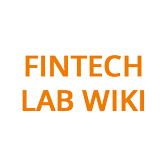Digital Infrastructures for Decentralized Organizations
In this section we review the information on digital infrastructures that are relevant to understand how technology may improv efficiency of decentralized organizations. In particular, we introduce the basic information that is relevant to become familiar with the, nowadays widespread notion of Decentralized Autonomous Organization (DAO) as commonly perceived in the crypto-space. This specific analysis will be focused on the digital infrastructure characteristics and, given the large amount of available material, will only review those sources that are relevant to the MUSA research project at hand.
Introduction
A DAO is a computer program that runs on a distributed peer-to-peer network. They are controlled by communities of online agents that collaborate and operate without the need for a central governing body. DAOs are created to operate without human involvement. This is done by transcribing organizational processes and governance protocols into algorithms. The code runs on a digital distributed ledger known as blockchain.
In centralized organizations, the power and authority to make decisions is held by executive members or top-level management. This creates a hierarchy decision-making structure where the top-level employees control and direct the organization. On the opposite end of the spectrum are decentralized organizations where decision-making is delegated and is flexible. This means that executives assign part of their responsibilities to management and communicate often to oversee processes.
A DAO is a type of decentralized organization; however, the key innovation is that DAOs are autonomous and can exist only relying on a digital infrastructure. DAOs rely on distributed ledger technology to record and enforce decisions and organizational processes. This could include aspects like issuing shares, appointing a CEO, voting on proposals, and paying salaries.
The foundation of DAOs are smart companies or agencies. A smart agency is an atomic governance unit that is managed and operated with smart contracts. Agencies should have their own tokens, reputation systems and governance system. The token is associated with the company’s resources, the reputation is based on the credibility in company matters and the governance system consists of the bylaws that are written and executed in smart contracts.
KEY TAKEAWAYS
- A decentralized autonomous organization is an entity structure in which token-holders participate in the management and decision-making of an entity.
- There is no central authority of a DAO; instead, power is distributed across token-holders who collectively cast votes.
- All votes and activity through the DAO are posted on a blockchain, making all actions of users publicly viewable.
- A DAO must ensure security is prioritized, as exploits can leave a DAO drained of millions of dollars of its treasury savings.
Although the ecosystem is heterogenous and evolving, DAOs can be classified in relation to three distinguishing characteristics:
- Use of blockchains, digital assets and related technologies
- Allocation and coordination functions
- Governance
In practice, different DAOs will adhere to these criteria to varying degrees. For example, some DAOs decentralize governance more extensively than others. Likewise, as a DAO evolves, the degree to which it adheres to each dimension may change as well.





